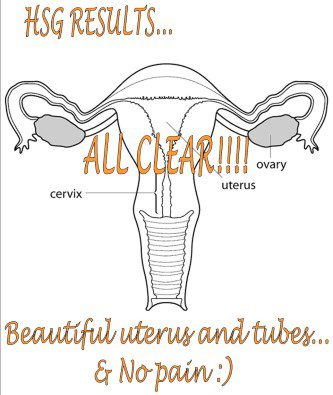 The fallopian tubes play an important role in reproduction. Sperm and egg must meet and fertilize in one of the tubes; the fertilized egg then moves to the uterus for implantation. Fallopian tubes must be patent (open) and flowing to allow for normal functioning.
The fallopian tubes play an important role in reproduction. Sperm and egg must meet and fertilize in one of the tubes; the fertilized egg then moves to the uterus for implantation. Fallopian tubes must be patent (open) and flowing to allow for normal functioning.
Here are some important facts about the tubal disease infertility.
An HSG can determine the health of your fallopian tubes
One of the first steps your fertility doctor will take is to diagnose the flow of your fallopian tubes. A hysterosalpingogram (HSG) is an X-ray procedure that determines if the fallopian tubes are open and if the uterus is normal.
The HSG can provide your physician with results during the procedure and is frequently part of an infertility workup.
There are several causes of tubal factor infertility
A blocked fallopian tube (or tubes) is one of the most common causes of female infertility, causing 25 to 30 percent of all cases. Blockage can occur because of endometriosis, post surgical adhesions and scar tissue, and infections, incluuding pelvic inflammatory disease (PID). PID is often caused by sexually transmitted diseases, but also through normal bacteria.
The scarring from PID can precipitate an ectopic pregnancy. An ectopic pregancy occurs when a growing embryo lodges in one of the fallopian tubes instead of moving to the uterus.
IVF was developed to solve tubal factor infertility
In the 1970s, English gynecologists Patrick Steptoe and Robert Edwards introduced the world to IVF in order to treat women with damaged or blocked fallopian tubes. Since the birth of Louise Brown, the world’s first “test tube” baby, more than 5 million babies have been born whose parents had a variety of infertility diagnoses.
Since IVF bypasses the need for functioning fallopian tubes, it is an ideal treatment for those diagnosed with this condition.
Surgery can treat tubal factor
IVF is a very effective form of treatment for tubal factor, especially if there are no other discernable reasons for a couple’s infertility. However, some patients may want to pursue surgical options if the prognosis is promising, such as tubal reconstruction or lysis of tubal adhesions, which cuts away scar tissue.
Patients should dicsuss these options with their physician to determine if surgery makes sense for them, depending on their age, the location of damage to their fallopian tubes, other fertility issues, finances and desire for subsequent pregnancies.
Have other questions about tubal factory infertility? Please let us know.
http://www.healthline.com/human-body-maps/fallopian-tubes
https://embryo.asu.edu/pages/vitro-fertilization

